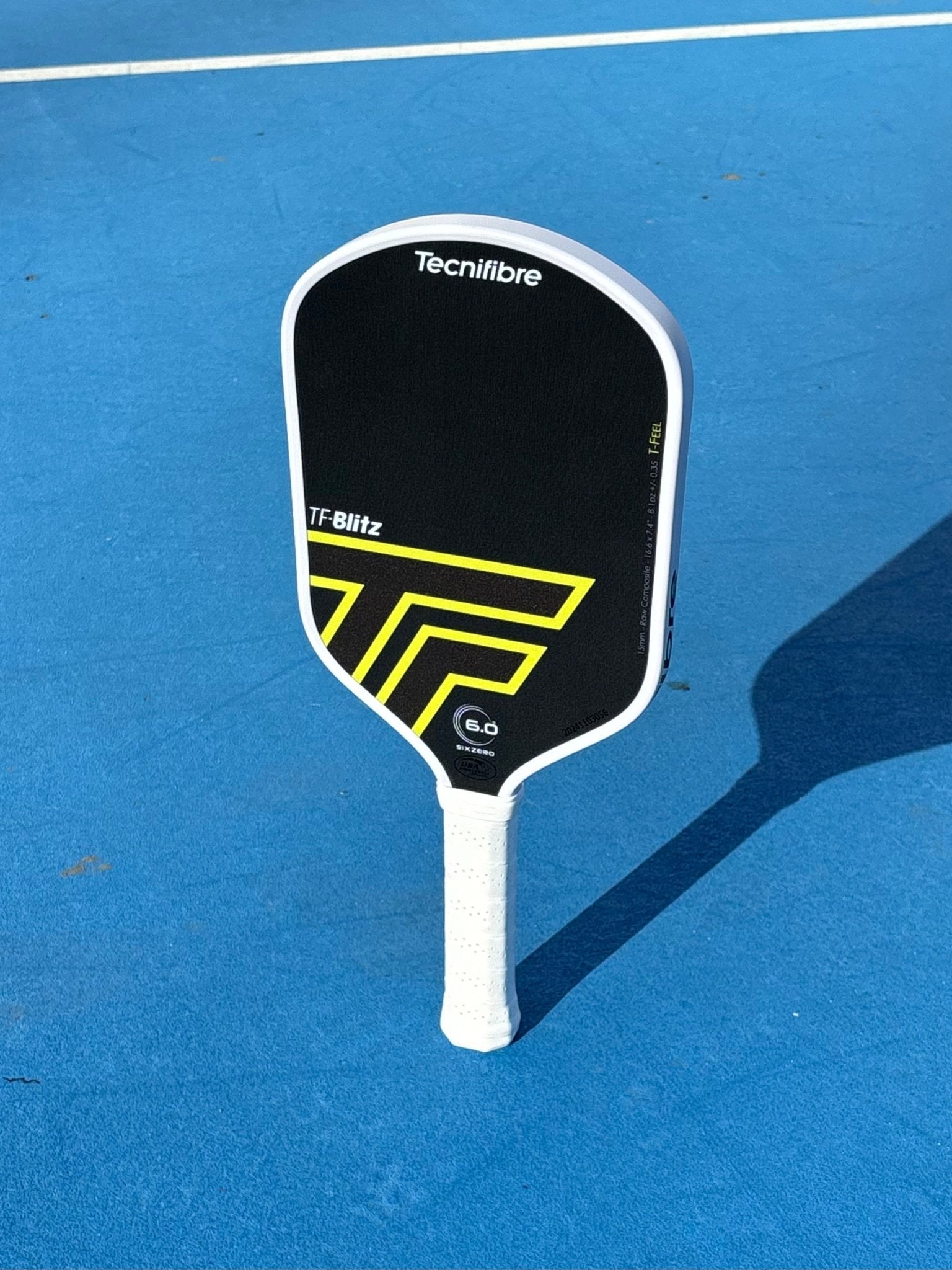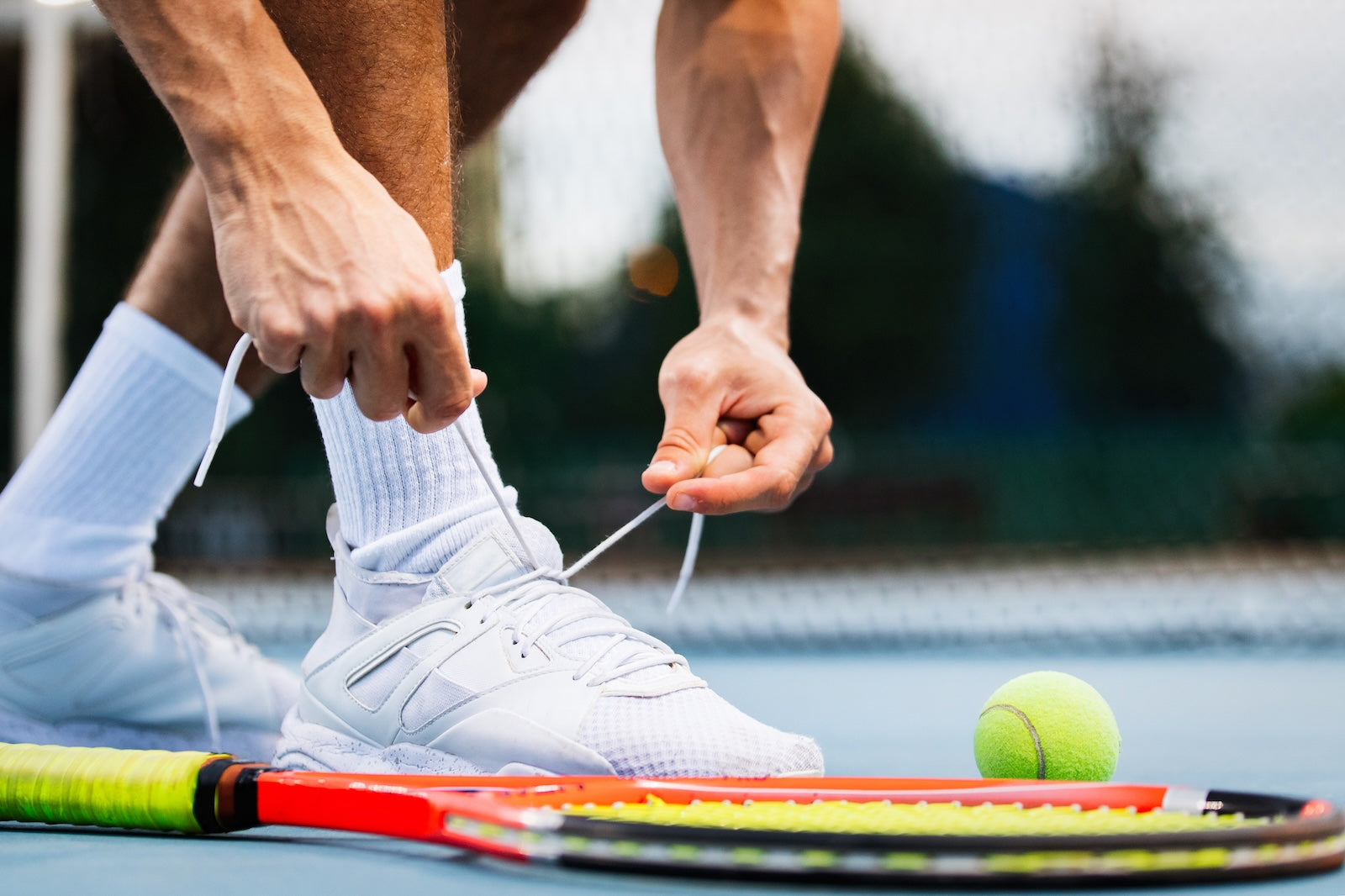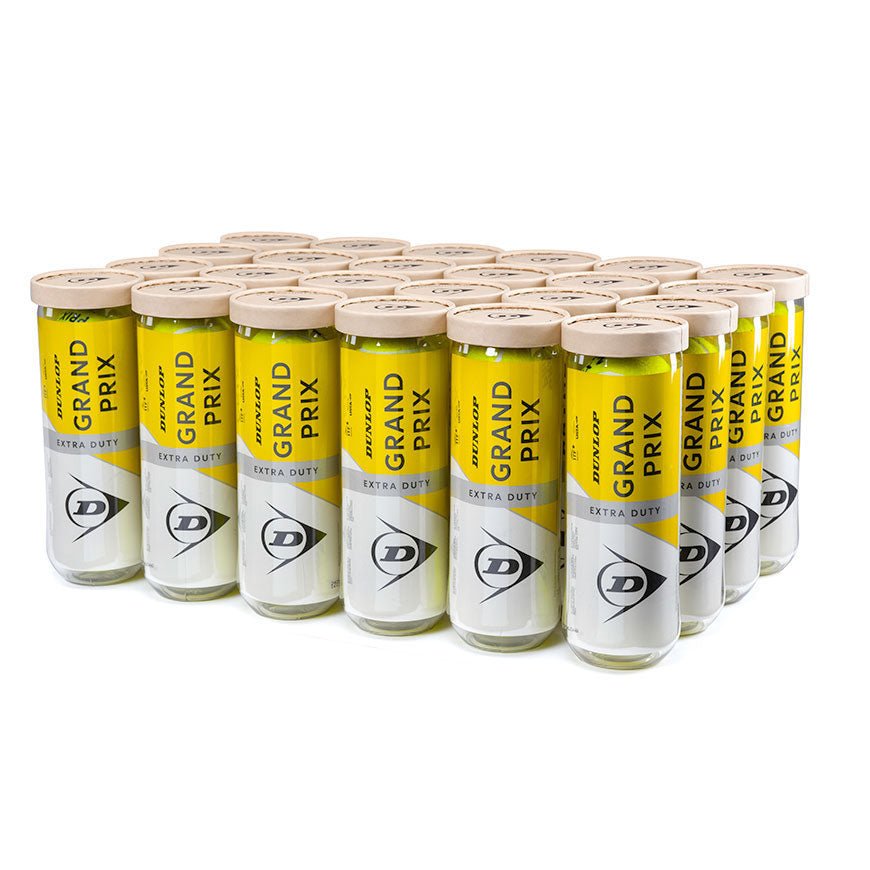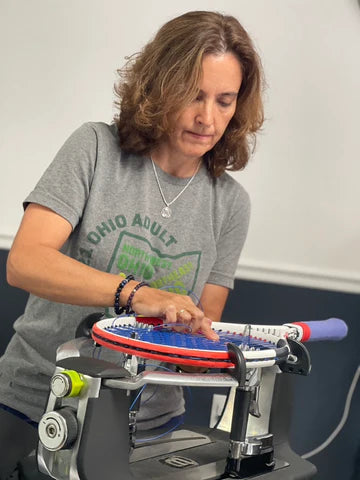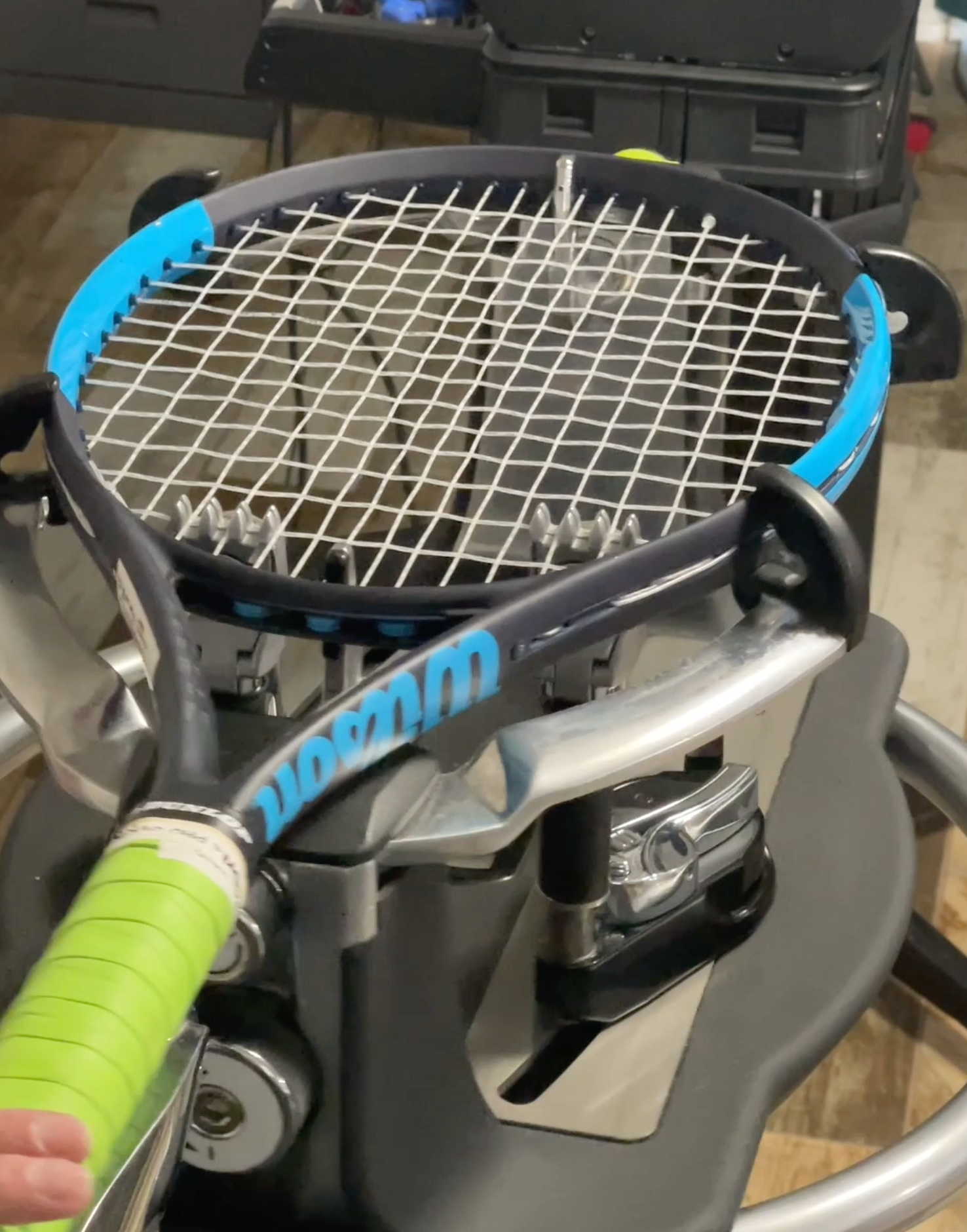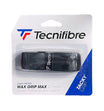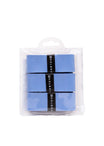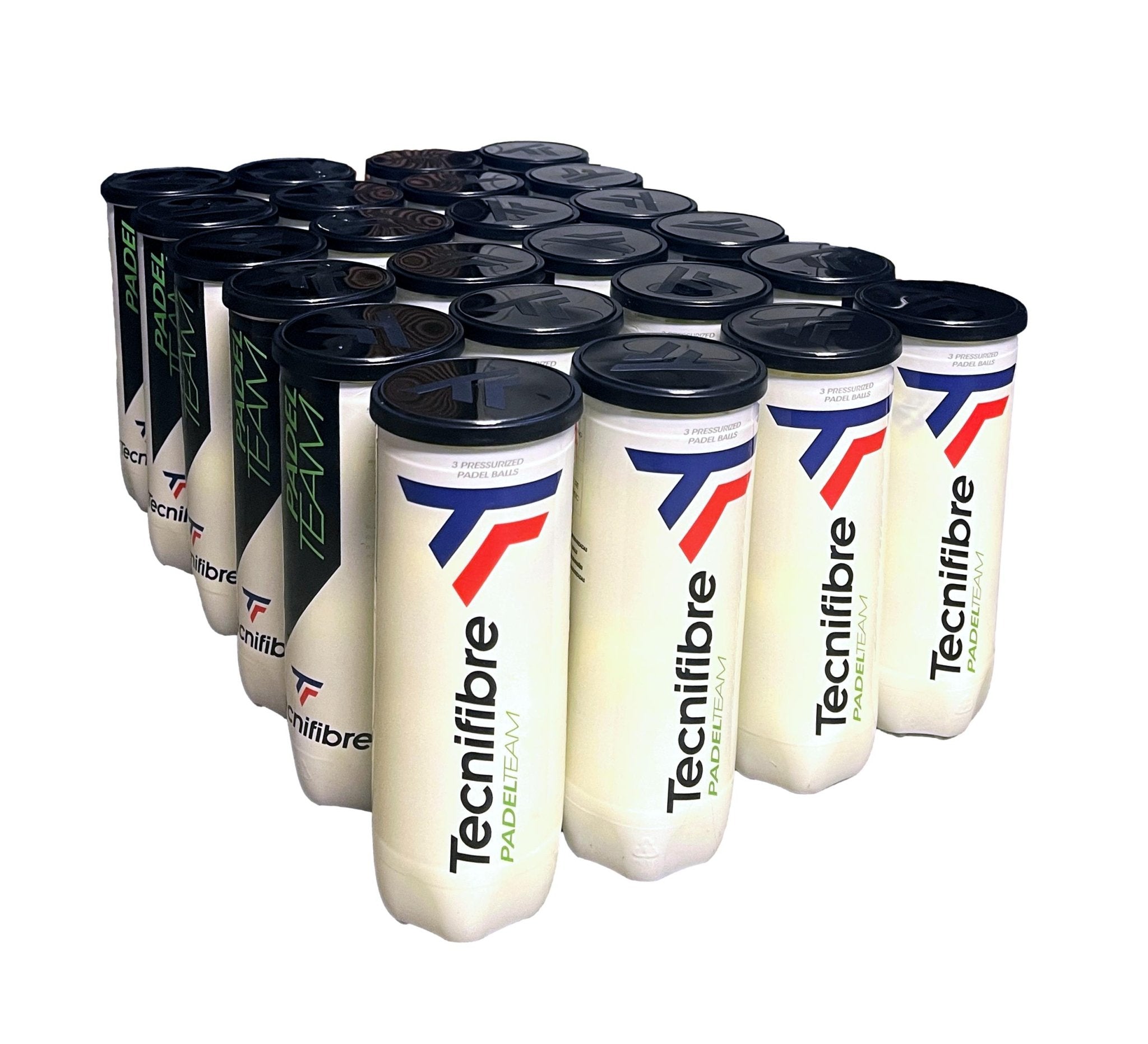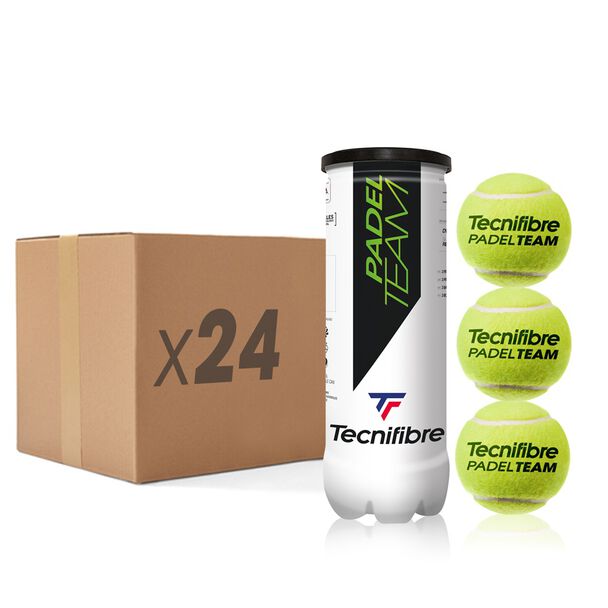Padel Balls FAQs
Are padel balls the same as tennis balls?
Padel balls differ from tennis balls, despite their similar look. They’re slightly smaller (6.35–6.77 cm vs. 6.54–6.86 cm in diameter) and have lower internal pressure (10–11 PSI vs. 14 PSI), creating a slower, controlled bounce perfect for padel’s enclosed courts and strategic play. At Racquet Point, our padel balls are designed to enhance your game with the right performance for every match.
What is the difference between training (basic) and competitive padel balls?
What is the difference between training (basic) and competitive padel balls?Training padel balls, like our Tecnifibre Padel Team balls, are built for durability, often with thicker felt or pressureless designs, making them ideal for practice. Competitive balls, such as our Dunlop Pro Padel balls, are pressurized for faster flight and higher rebound, meeting tournament standards. Our Dunlop Fort Padel balls offer a versatile balance, great for both practice and matches.
How long do padel balls last, and how often should I replace them?
Padel balls typically last 2–3 sets (6–9 games) in competitive play, though durability varies with intensity and conditions. In casual games, they may last longer if stored in pressurized cans. Replace them when they feel flat or lose consistent bounce to keep your game sharp.
What are the official size, weight, and color requirements for padel balls?
The International Padel Federation (FIP) mandates padel balls to have a diameter of 6.35–6.77 cm, weigh 56–59.4 grams, and be yellow or white. They must bounce 135–145 cm when dropped from 2.54 meters (121.92–135 cm at higher altitudes). All padel balls at Racquet Point meet these standards, ensuring tournament-ready quality.
How much do padel balls cost in the US, and where can I find the best prices?
Padel balls in the US generally cost $5–$8 for a 3-ball can, with bulk cases offering better value. Racquet Point provides competitive pricing and regular promotions, making it easy to stock up affordably. Our online store offers transparent pricing and fast shipping for your convenience.
Which brands of padel balls are most recommended or popular in the US?
Racquet Point carries trusted Dunlop and Tecnifibre padel balls. Dunlop Pro Padel balls are popular for their speed in competitive play, Dunlop Fort Padel balls for their all-around durability, and Tecnifibre Padel Team balls for cost-effective training. US players rely on these for consistent quality.
Where can I buy padel balls in the US (online vs. local stores)?
Racquet Point is your top choice for padel balls in the US. Our online store offers a wide selection with fast shipping. Racquet Point makes it easy to get the padel balls you need.
Are there padel balls specifically designed for indoor vs. outdoor play?
Padel balls aren’t labeled for indoor or outdoor use, but their performance varies. Pressurized balls, like our Dunlop Pro Padel balls, shine indoors with high bounce and speed. More durable options, such as our Dunlop Fort Padel balls, hold up well outdoors against wind and humidity.
Can I use padel balls for other racquet sports like pickleball or tennis?
Padel balls are made for padel and aren’t suitable for pickleball, which uses hard, perforated plastic balls, or tennis, where higher-pressure balls disrupt padel’s strategic flow. For the best padel experience, stick with our padel-specific balls at Racquet Point.
Do padel balls come in different packaging sizes (single tubes vs. cases), and is it cheaper to buy in bulk?
Racquet Point offers padel balls in 3-ball cans for individual matches or bulk cases for teams and frequent players. Buying in bulk, such as 72-ball cases (24 cans), is more cost-effective, reducing the per-ball cost. Stock up to save on your next purchase.
Shop Padel Balls at Racquet Point to find the perfect balls for your game!
Shop Racquet Point for the best padel balls from leading brands like Dunlop, Adidas, and Tecnifibre. Engineered for optimal bounce and durability, these balls deliver reliable performance on any court.


